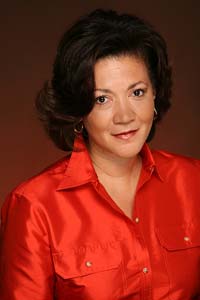Over the Phone All Was Normal
Mantorville is a small town of appox ~1100 located about 20 minutes west of Rochester Mn, or about 1 hour south of the twin cities. Charming little town that’s been around since the area was first settled in 1854 and has been the county seat since those days. If you’re ever here, be sure to visit the Hubbell House.
In perhaps my best “Paul Harvey” voice, the rest of the story.
My Dad had a habit that around the supper table he’d share with us the adventures of his day. He worked as a manager for a good portion of his life. Most of the tales would be stories related from coworkers, sometimes jokes he’d learned that day and on a very rare occasion situations he’d had to deal with.
We lived in North Dakota, which while rich in ethnic diversity of Norwegians, Swedes, Finns, Germans, and others that had settled there. There were precious few people of color save for the native American population. Unlike their Northern European neighbors, Native Americans were forced to settled in the area on reservations as a result of the Dakota Wars that had started in Minnesota in 1862. While a long time ago, it’s results could still be felt back in our old dinning room as my Dad shared his story that day.
My dad, fork in hand, seated at the head of the table had had to have a difficult talk with one of the doctors, a man who even tho I was but a teenager happen to know through different social circles. This doctor had been inviting Native Americans to visit his office without appointment to receive free drugs, food, and other things to help them out. My dad quoting hospital policy, gave direction that this wasn’t to occur anymore. Poor though these Indians may be they were to be turned away. They didn’t belong unless they were there as patients.
During these times and before the internet, there were what was called electronic bulletin boards that one would call up with your computer over the telephone where you might play games, chat, post messages and so on. With a few friends I happen to run one of these bulletin boards so as a result I was getting to know people far afield of my high school much less my home town. I wasn’t one to keep many friends. Mostly on account that I tended not to have much in common with other kids my age and this outlet to meet others like me was a breath of fresh air.
One person in particular was a kid who lived out east. We instantly took to each other having many common interests. Our friendship evolved where we would call each other over the phone besides just talk over the computer.
Over the phone everything was normal, two high school kids talking about summer jobs, potential girl friends, computers, games, teachers, sharing jokes, just to name a few. The subject of what our dads did for a living came up. I shared that being a manager my dad had some interesting situations to deal with sometimes. My friend asked why so I elaborated by telling him the story of the native americans turned away. Not being from the area I had to explain to my friend that around here there was a lot of hate towards native americans, and proceeded to rattle off the stereotypes: that they often tended to be poor, lazy, lived on the reservation, usually went to completely different schools, used drugs and were drunk a lot. And that’s when I mentioned that they were not always called indians but also prairie n*****. This was when my friend spoke up and said, “You know I’m black right?”
I didn’t. It hadn’t even occurred to me. Race doesn’t exactly show up over the computer or the phone.
Over the phone everything had been normal but I had crossed a line. A line that having grown up in an area without diversity I had no appreciation for, much least understanding of the full weight and measure of it’s existence. My friend in retrospect was probably disappointed if not out right mad with me. I wasn’t mature enough to understand how to approach this situation of my creation, much less have an idea of what to do. I can only imagine what my friend might have been thinking on the other side of the line. Simple words like “I’m sorry” don’t come easy to someone who doesn’t understand the gravity of the wrong that they’ve done.
We didn’t talk as much after that and over time drifted apart. One of life’s lessons, but for someone with few friends as it was, an above average but deserved cost.
Best Regards,
Tom
View Tom’s Essay @ The Race Card Project
Michele Norris is the host of NPR’s All Things Considered and the author of The Grace of Silence.
You can find it it your local book store or you can order it online at Amazon, Barnes & Noble, Borders, Powell’s or IndieBound


